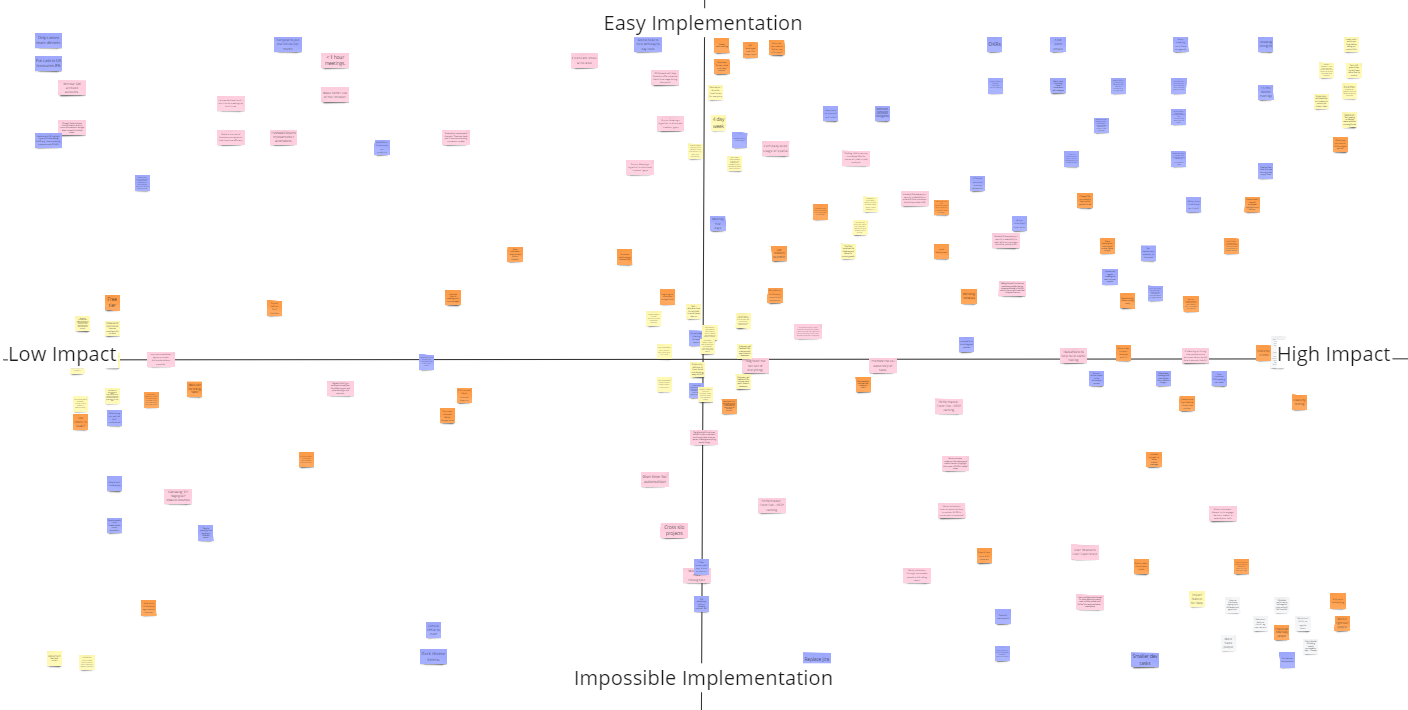The One Percent Exercise
At a recent off-site we ran a simple group exercise that will hopefully make a big difference to the success of the company
Our company operates nearly fully remote. My team are scattered around Europe in various places and we only get together in person two or three times a year. These off-sites are precious and we try to use the time as productively as possible.
Each off-site is usually two days and follows a similar format.
The first morning is a set of updates from various teams and management on different aspects of the company. The afternoon is usually a group exercise of some form followed by social events in the evening. The second day is devoted to each team having time to work on things face to face that they would not normally be able to do; for us this is usually brainstorming and discussing some technical problem or design.
The group exercise this time was called the “1% exercise”.
Background
In 2003, British Cycling appointed David Brailsford as their performance director. From 1908 until the time he was appointed Britain had won one Olympic gold medal and no British cyclist had ever won the Tour de France. After his appointment, between 2007 and 2017, British cyclists won 178 world championships, 66 Olympic or Paralympic gold medals and 5 Tour de France victories.
They achieved this by focussing on marginal gains, the 1% changes.
For example, these are some of the varied changes they put in place:
- More comfortable seat so they could ride longer
- Rubbed alcohol on the tyres for better grip
- Tested different massage gels for faster recovery
- Washing their hands to reduce risk of infection
- Changed pillows and mattresses to aid sleep
- Painted the inside of the truck white to show dust
- Heated overshorts for ideal muscle temperature
Setting the scene
The group exercise we did was to try and identify any marginal gains we could make to the company to improve it. This could cover a number of areas:
Improved culture - What can we do to improve our culture? What would make this a better place to work?
Lower Costs - How can we lower our costs to make the runway longer or to provide better customer value?
More Motivation - What can we do to improve your time at the company? What would make your role better? What would make you excited to work every day?
More Customers - What can we do to get more customers? Or get more sales leads? Or get better customers?
Improved tooling - What software would make your role better/easier?
Improved Productivity - What processes would improve productivity? What processes should we remove/change/add?
Better Product - What could we do to improve our products? (Features/performance/value)
Improved Delivery - How can we deliver quicker? How can we deliver better? (Quality/performance)
Improved Communication - How can we improve communications? - Internal and external, Meetings, emails, chats/documentation
The Exercise
We split into a number of groups with a mixture of people from different departments.
Step 1 (~30 minutes)
- Brainstorm as many ideas as you can across all areas
- Write them on post-it notes
- Do NOT worry about how feasible they are, if there are duplicates or organising them.
Step 2 (~10 minutes)
- Rotate around all the other groups answers and have a quick read of theirs
Step 3 (~10 minutes)
- Return to your original groups and capture any additional ideas that you have had based on other groups ideas (new ideas, not just copying them)
Step 4 (~60 minutes) Discuss the notes in the group and organise your ideas:
- Remove/rewrite duplicates
- Organise the post it notes based on a graph of two axes:
- Ease of implementation (easy - impossible)
- Size of impact (small - large)
Also keep a section for other ideas that don’t fit for whatever reason so they will at least be saved.
After this was completed we transferred the notes to Miro and pulled all the notes together into a single graph.
The flood of post it note ideas we produced:

We are now analysing the results to see what we can improve and make an impact.
As an aside, I think that a similar exercise could be performed by an individual or a family to identify areas that can be improved in their personal/family lives.
Maybe something to try in future.
Links
Marginal Gains: This Coach Improved Every Tiny Thing by 1 Percent